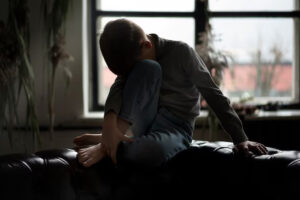A terrifying event can trigger the development of post-traumatic stress disorder (PTSD), an anxiety disorder. In addition, some symptoms include flashbacks, nightmares, severe anxiety, and repetitive thoughts about the event. PTSD can have a very negative impact on your life, making it difficult to hold down a job or maintain relationships with family and friends. In the end, you would need psychiatric treatment for PTSD.
Everything to Know About PTSD
The National Center for PTSD explains that a person who has been exposed to a traumatic event that threatened their life or caused injury or sexual violence can experience PTSD.
Moreover, some of the factors that increase the risk of developing PTSD include Military combat, physical or sexual assault, natural disasters, accidents, and childhood abuse.
Some of the symptoms of PTSD begin immediately after the event, while others may only appear years later. Symptoms can also become chronic if not treated with psychiatric treatment for PTSD.
Some Of The Ways PTSD Can Affect A Person’s Life
Relationships: PTSD affects your ability to have healthy interpersonal relationships. Those with PTSD usually avoid social contact with friends and relatives, or they may become aggressive or uncommunicative.
Work: PTSD can cause problems in concentration at work or in doing a job. Those suffering from PTSD might also have problems with coworkers or clients.
Physical health: PTSD has been known to affect your physical health in many ways. Some of the symptoms include headache, stomachache, sleep disturbances, and difficulty concentrating, among others.
Mental health: PTSD can also result in other mental disorders, including depression, anxiety, and substance use disorders. One of the effective solutions is psychiatric treatment for PTSD.
How PTSD Affects Your Daily Life
In the worst-case scenarios, PTSD makes people more likely to be jobless, earn less, and be homeless. It can also cause problems with relationships:
Intrusion: Some of the symptoms that are associated with PTSD include flashbacks, nightmares, and intrusive thoughts of the event. These distressing symptoms can significantly affect concentration and sleep.
Avoidance: Some of the symptoms of PTSD include avoiding places, people, situations, or things that remind the person of the trauma. Consequently, this can make it hard for people to go to work, school, and other social activities.
Changes in mood and cognitive function: People with PTSD often experience changes in mood and cognition, such as depression, anxiety, anger, and guilt. They may also have problems with their concentration, memory, or ability to make decisions.
Arousal and reactivity: This disorder can make people easily startled and unable to relax. They may also be easily suspicious, which means that they are always looking out for a danger that may be around.
Don’t Let PTSD Control Your Life
At Greener Pastures Welness, our professionals provide psychiatric treatment for PTSD, using CBT and exposure therapy, among others. Moreover, we can assist you in dealing with the symptoms, becoming stronger, and regaining control. Please feel free to contact us today for a free consultation, and let’s see how we can help you.




